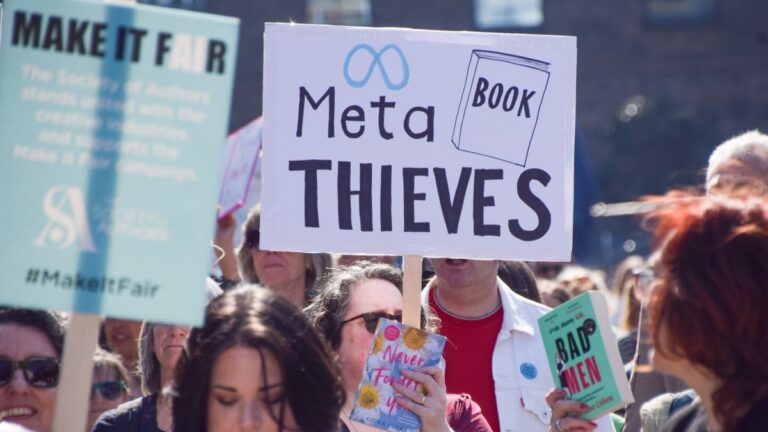The plaintiffs in the historic Kadrey v. Meta Case already submitted the controversial report of AI of the United States copyright as evidence in their demand for the violation of author against the technological giant.
Last Friday, the copyright office silently launched a “version prior to the publication” or its views on the use of author rights to train generative models. The consequent report contained bad news for AI companies that they hoped to claim the legal doctrine for just use as defense in the court.
Less than a day after the report was published, Shira Perlmutter, the head of the copyright office, was fired by President Donald Trump. It is still not clear exactly why Perlmutter shot, but the movement alarmed some copyright lawyers, as a mashable reported previously.
And on May 12, the plaintiffs in Kadrey V Meta, who includes artists and authors such as Junot Díaz, Sarah Silverman and Ta-Nehisi Coates, presented the report as an exhibition in their collective demand.
What is in the AI report of the United States copyright?
The office report was the conclusion of a three -part investigation into the copyright law and artificial intelligence, which calls unknown legal territory. The report “Copyright and Artificial Intelligence Part 3: Generation ai Training” examined exactly the type of legal problems at stake in Kadrey V Meta.
While some copyright lawyers and democratic politicians have speculated that the report led to Perlmutter’s dismissal, there are other possible explanations. In a blog post, the copyright lawyer Aaron Moss said that “it is more likely that the office run to publish the report before a wave of leadership changes can, or derail, its conclusions.”
The report addressed in detail the four factors of the doctrine for fair use. Goal and other AI companies are being sued for using copyright to train their AI models, and a particular goal has affirmed that this activity should be protected by fair use.
Mashable light speed
The 113 pages long report spends about 50 pages that deepen the nuances of fair use, citing historical legal cases that ruled and against fair use. It does not reach any general conclusion, but its analysis generally favors copyright holders about artificial intelligence companies and their unprecedented data storage for model training.
The position of the copyright office on the issue of White Hot does not align with the wishes of the great technological titans, who have approached the Trump administration. In general, President Trump has tasks of a pro-technology approach to the AI regulation.
The plaintiffs in Kadrey v. Goal Case clearly expect the report to tip the scale in your favor. The lawyers who presented the report as evidence on Monday did not explain in detail why it was presented as a “declaration of complementary authority.” The letter simply said: “The report addresses several key issues discussed in the parties” respects the motions regarding the use of copyright in the development of generative AI systems and the application of the doctrine for fair use. ”
The AI models can damage creative markets, the copyright office finds

The controversial copyright report could incline the balance for the case against the goal.
Credit: Wildpixel / Istock / Getty Images
The part of the report that is potentially the most condemnatory for finishing is the evaluation of the copyright office of the fourth factor of fair use, which are the effects on current or future markets.
“The use of pirated collections with copyright to build a training library, or the distribution of said library to the public, would damage the market for access to those works,” said the version prior to the publication of the report.
The analysis also considers a possible market dilution for the authors. “If thousands of romantic novels generated by AI put on the market, feer of romantic novels, authorized by humans, it is likely that AI will be sold.
On the other hand, Meta argues that its AI model flame does not compete with the authors’ market, and that the transforming result of the model makes the argument of fair use irrelevant.
While the report favors the argument of the plaintiffs, we do not know if the judge in the case will agree. And because this is a version prior to the publication, it could be edited or simply terminated by a future leader in the copyright office.
Disclosure: Ziff Davis, Mashable parent company, filed a lawsuit against Openai in April, claiming that he violated the copyright of Ziff Davis in the training and operation of his AI systems.


